Hanne / 23 / librarian / any pronouns / I follow from @littlewallflwr
Don't wanna be here? Send us removal request.
Text
💗📑STUDY LIKE YOUR FAVORITE CHARACTER💗📃










Source : Pinterest
3K notes
·
View notes
Text
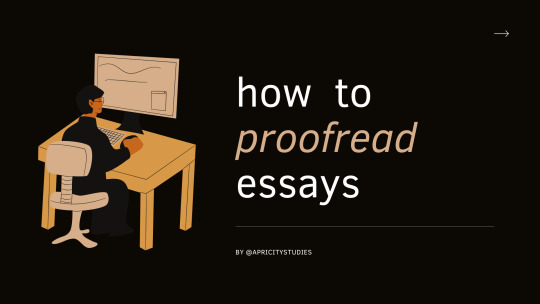
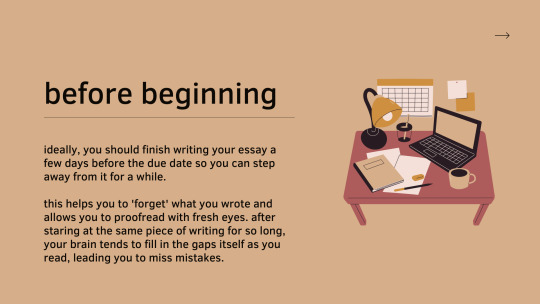
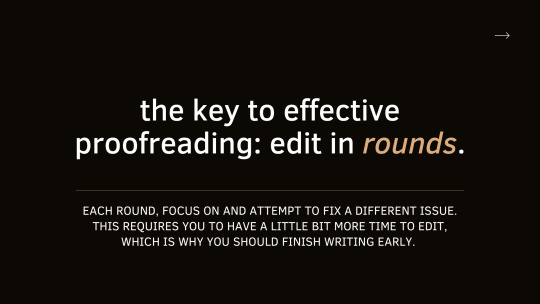
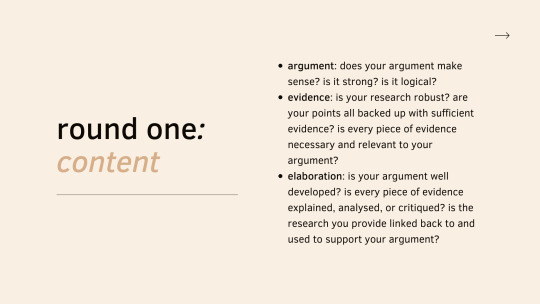
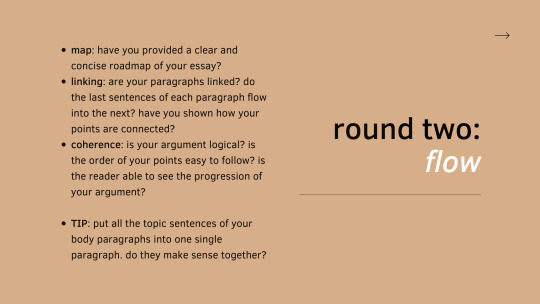
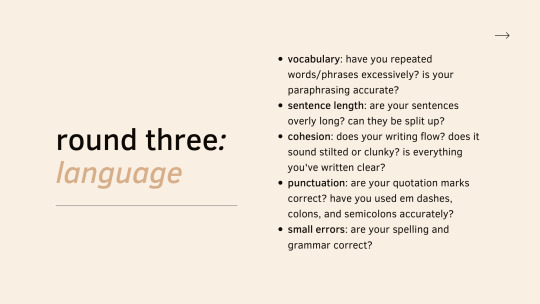
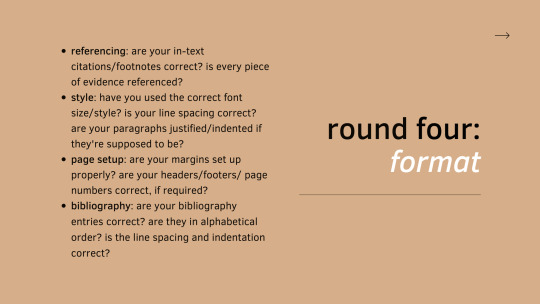
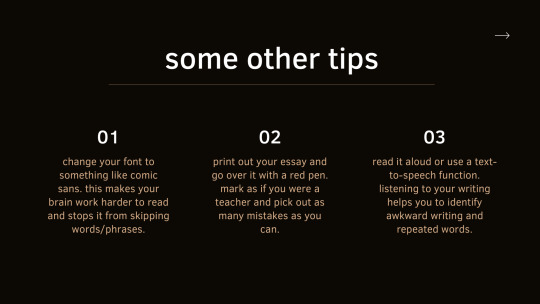
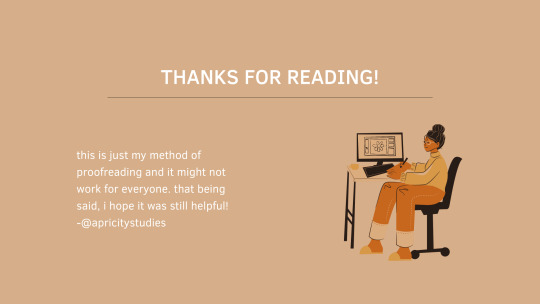
here’s a quick guide on how i proofread and edit my essays as an humanities undergrad! i tend to spend more time on research and editing and much less time on writing and my first drafts are often horrendous, so editing is really important for me :^)
i’ve also created guides on essay preparation, the 5-paragraph essay, how to research, and how to write essays. you can find all my other masterposts here.
transcript below:
Keep reading
7K notes
·
View notes
Text
reading academic articles be like.........

815 notes
·
View notes
Text
I’m all for academic integrity and accurate citing until I change the access date in the footnote to make my professors think I didn’t procrastinate
25K notes
·
View notes
Photo

Det Norske Skolesystemet
Utdanning i Norge er obligatorisk fra 6-16 år. Hvert barn har rett til gratis utdanning mellom disse alderne, men det finnes både offentlige og private skoler i Norge. Det norske skolesystemet omfatter tre utdanningsløp: barnehage, grunnskole og vidergående skole.
Barnehage
Mange barn går i barnehage mellom 1 og 5 år. Det er ikke påbudt at barn skal gå i barnehage, men statistikk fra 2012 viser at åtte av ti ettåringer og ni av ti toåringer gjør det. 96% av barn som går i barnehage har fulltidsplass. De fleste barnehager er privat drevet, som betyr at de vanligst ikke er gratis.
Grunnskole
Grunnskolen omfatter barneskole (1. til 7. trinn) og ungdomsskole (8. til 10. trinn). I noen skoler er 5. til 7. trinn (mellomtrinnet) en del av ungdomsskolen. Grunnskolen er obligatorisk og gratis for alle i Norge. I barneskolen lærer barn om blant annet matematikk, vitenskap, engelsk, religion, geografi og historie. I ungdomsskolen fortsetter barn med disse fagene, og har også muligheten til å studere et fremmedspråk (typisk spansk, tysk eller fransk) og et valgfag (som f.eks. fysisk aktivitet og helse, teknologi i praksis, sal og scene osv). Barn begynner å få karakterer på skalaen 1-6 i ungdomsskolen, med 1 som laveste og 6 som høyeste.
Videregående skole
All ungdom i Norge mellom alders 16 og 19 år har rett til tre års gratis videregående opplæring. Opplæringen fører til enten studiekompetanse (som betyr at man kan ta høyere utdanning f.eks. på universitet eller høyskole) eller yrkeskompetanse (som betyr at man kan jobbe i et praktisk yrke). Videregående utdanning er ikke obligatorisk, men de fleste velger den; 93% av 16-18 åringer i Norge var registrert som elever i 2019. Karakterer følger den samme skalaen som i grunnskole, men elever må få 2-6 for å bestå faget.
Hvis jeg har gjort noen feil (grammatiske feil, skrivefeil eller feil informasjon), vær så snill å fortelle meg!
32 notes
·
View notes
Text
i want to be a vampire,,,not bc of the aesthetic but bc i could live a thousand years & major in so many subjects & just learn.
17K notes
·
View notes
Photo



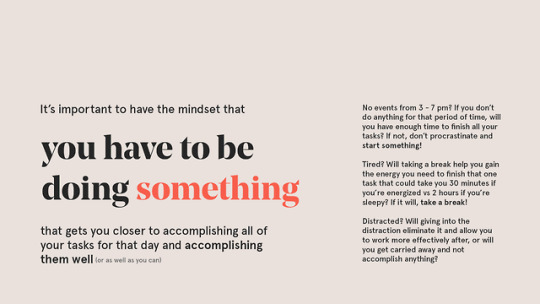

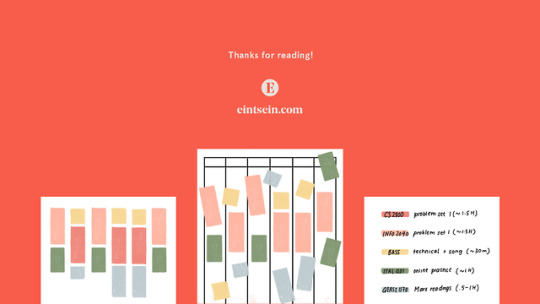
Flexible Time Blocking: A More Breathable Way to Get Things Done
I’ve met a lot of people who struggle with sticking to a schedule - myself included - so here’s one way you can get things done without restricting your spontaneity.
Linked: The ABCDE Method: Accomplish Tasks More Efficiently
Hope this helps!
12K notes
·
View notes
Text
at my job we have to go through a training program that teaches us the library of congress classification system, and when i was first being trained my boss started to boot it up and she gave me a really anxious and guilty look and said “listen, i’m really sorry in advance, there’s nothing i can do about this, just…. just try to get through it” and i was like lol what’s she talking about and then the program loaded and i was greeted with a deliriously funny-looking photoshopped wizard with glowing eyes pointing at some intro message like “AH YES, JUST AS THE PROPHECY FORETOLD… APPRENTICE, YOU COME AT A TIME OF MOST DIRE NEED… YOU MUST LEARN OUR WAYS” and my boss just looked at me helplessly and was like “i’m so sorry. it’s like two hours long.”
thankfully it wasn’t an elaborate fever dream and i have found screenshots


116K notes
·
View notes
Text
Productive Things That Aren’t Studying
washing the dishes
making your bed
tidying your book/dvd shelf/shelves
cleaning the cupboard/wardrobe
reading
sleeping
writing a blog
planning your month/week/day
replying to messages or asks
responding to emails
sorting through letters/mail
clearing your email inbox
organising stationery
clean your sinks
clean your toilets
pet your pet
sort through old clothes
give to charity
go on a walk
go on a run
clean down any surfaces
work out
meal prep
get rid of empty shampoo bottles from the shower
clean out old food from the cupboard/fridge
empty out your school bag
call your parent
unfriend/unfollow people you no longer interact with
watch a TEDTalk
empty the bins/trash
clean the mirrors in your house
hug your pet
wash some clothes
buy any birthday cards/presents that you need to
reply to any old texts
make a tumblr post on productive things that aren’t studying
50K notes
·
View notes
Text
GUIDE TO:
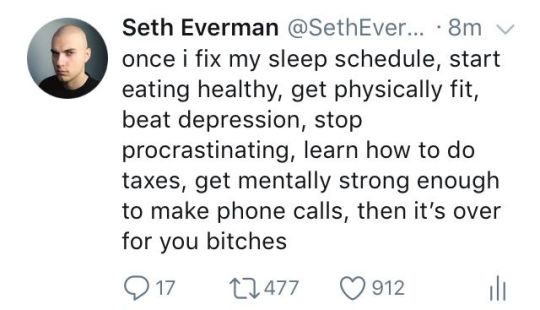
FIX YOUR SLEEPING SCHEDULE (1-2 months)
Try to wake up earlier every day. Like 5 - 10 min earlier than the day before. Until you wake up any time before 8am or so…
If you struggle with waking up & snooze button is you bff:
Put your alarm clock as far away from the bed as possible.
Drink a glass of water right after you wake up.
Pour another glass of water on yourself right after you wake up.
Prepare some coffee the night before, leave it by your bedside, drink it after you wake up.
Have your blinds/curtains open, so that it’s bright after you wake up.
Try to go to bed 5-10 min earlier than the night before.
Track how many hours of sleep you’re getting. Aim to get at least 7h per day or 49h per week.
Increase your sleeping hours incrementally. Aim to get at least 1h of sleep more than the previous week. For example, if this week you slept for 41hrs, aim to get an extra hour of sleep next week, so it’s 42h.Once you get enough hours of sleep and wake up early-ish.
Try to keep your sleeping schedule consistent. It is really important to go to bed and wake up at the same time every day. Even if it’s weekend. Or even if that means, you getting less than 7hrs of sleep that day. I’d say waking up at the same time everyday is the most important step, which will help you the most with fixing your sleeping schedule.
START EATING HEALTHY (1-2 months)
This step really depends from person to person, but firstly I suggest you take some blood tests to see if you have any deficiencies, etc. Especially, if you struggle with cravings.
Try intermittent fasting, if you struggle with binge eating or overeating. As it will help you to learn to listen to your body better: when it’s hungry, when it’s full, etc. It’s really simple, there are many methods of Intermittent fasting, but I’d suggest 16/8 for the beginners. (Google it for more info)
DRINK ALL THE WATER. Again, if you’re not drinking enough water, try to level up your water game incrementally. Download some water tracking app on your phone to help you. Drinking water will make you more energetic, increase your metabolism, and decrease you appetite (among many more benefits).
Track what you eating. I would really suggest tracking your meals for around a month. Because, most of the time people have no idea that what they’re eating is unhealthy. Again, download an app to your phone for that.
Make your own meals once in a while. Not only this will save you money, but it’ll help you to see what’s really going into your body.
Eat less meat and more veggies/fruits. Go to your local market and buy some veggies/fruits, you have never tried before. I’m sure you’ll find your new favs. Eat/buy less meat. Not only it’s good for the environment, but it is good for you, too. Get a veggie burger instead of the beef one, etc.
Cut dairy. Find your new favourite milk substitute. Advice: Oat milk is really good with the tea and oatmeal/porridge; hazelnut milk is amazing on it’s own; cashew milk goes well with cereals.
Learn more about nutrition in general. It will help you to make better food choices and it will make eating healthy much easier in general, because once you understand all the chemistry behind the food and what it does to your body, you kinda don’t want to make yourself feel worse. Here are some free resources: - Human nutrition course from Alison.com - Crash course Metabolism&Nutrition: Part 1 and Part 2 - The Health Nerd’s YouTube Playlist about nutrition - What I’ve Learnt YouTube Playlist - Human nutrition course from Alison.com - Crash course Metabolism&Nutrition: Part 1 and Part 2 - The Health Nerd’s YouTube Playlist about nutrition - What I’ve Learnt YouTube Playlist
GET PHYSICALLY FIT (2-6 months)
Define your goals. Do you want to lose weight, do you want to get stronger, gain weight, be able to climb stairs without losing breath, run 5k?
Remember - you’re half-way through. Being physically fit has a lot to do with what you put into your body. So, if you fulfilled the previous step of eating healthy - you are half way through!
Make a plan. A Reasonable plan. Be honest with yourself.
Start small. Like, 5 min exercise in the morning. Or doing 10 sit ups per day. Don’t do anything overwhelming, like running 5k everyday if you haven’t run for the past 5 years.
Make sure that you kinda like what you’re doing. If you absolutely hate running - don’t do it. Hate doing sit ups in the morning? Try some yoga instead.
Explore until you find what you like. You don’t have to go to gym to get fit, especially if you hate it. Find a type of exercise, which you actually like. Maybe it’s dancing or hiking, taking your dog for a walk. Sign up for several trial lessons of various sport clubs. Ditch ‘em if you have them until you find something that you love. Stick with that.
Do the small changes in your everyday life. Stairs>Escalator, Walk>Drive, Do some squats while brushing your teeth, switch from regular desk to standing desk, etc… Find ways to incorporate being active into your everyday life
Track your effort instead of your progress. You cannot really control your progress that much (especially if your goal was to lose weight). However, you can always control your effort. So track it instead. This will leave you more motivated. As you will be able to see that you can do more and more everyday. Whereas, if you tracked your progress, you may not always get the result you hoped for, which might demotivate you and make you upset, wanting to quit.
BEAT DEPRESSION
Do the previous 3 steps and you’re half way through.
See a therapist/doctor. Depression is an illness, requiring medical treatment. So, get it. Remember: there is absolutely no fucking shame in having a mental illness.
Get some extra support. Talk to your friends or family. Or maybe someone on the internet.
Write it out. If you don’t want to talk - write down your thoughts. It can be just as helpful. It’ll help you to understand yourself better, see problems in your thinking, etc.
Distract yourself from yourself. Get someone/something to take care of, so that you can, for a moment, stop thinking about yourself and focus on something else. E.g, get a plant, or a dog, or a fish.
Self-care day. Dedicate at least one day per week for self-care. Take yourself out, either to a museum or some fancy cafe, do some stuff you like, whatever your hobbies are, do some physical self care: bath, face mask, manicure, etc., listen to some nice music, watch a film…..
STOP PROCRASTINATION
Celebrate your victories instead of mourning over your loses.So the only thing you’ve done today was write one sentence for your 20 page essay? Amazing! Buy yourself a candy for that!! I mean, you could’ve done nothing, but you didn’t - you wrote that one sentence and that’s worth celebrating.
Do it for only 2 minutes. If there’s an important thing you’ve been putting off for a while, tell yourself that you will only spend 2 minutes on doing it. If after 2 minutes you don’t want to do it anymore, great, stop it. However, after 2min. you actually might want to do more. No pressure either way.
Track your productivity. Track how much time you’ve been productive that day. Try to increase that time by a little bit every day.
Always forgive yourself. So, it’s been a week and you’ve done nothing? Don’t sweat it. Let it go. Blaming yourself will bring you absolutely nothing. Nothing good will come out of your negativity on yourself. So stop it. Forgive yourself and start again. And again, if you need to. Never stop trying. Always pick yourself after you fall. Beating procrastination and increasing your discipline is a skill. And all skills can be build on. There is nothing in you stopping you from changing. Remember that.
LEARN HOW TO DO TAXES (1h - 1 day)
Go to google.com.
Type in: “How to do taxes *the name of the country you’re living in*”
Read the results.
GET MENTALLY STRONG ENOUGH TO MAKE PHONE CALLS
Remember that just as with beating procrastination, making phone calls is a skill. And, again, skills can be learnt.
Get a new SIM card.
Top it up.
Dial some random numbers and pretend to be a salesman, selling whatever you like.. E.g., trying to sell broadband, cable tv, trying to get people to donate for some charity… Or whatever really… Me and some friends used to pretend we’re selling kittens or wood logs. Alternatively, you can pretend that you dialed a wrong person and talk about whatever, e.g. “Hey, Jess!! You wont believe what I saw today!! *start telling a made-up story*…”
If you get uncomfortable - just drop the call. No consequences whatsoever.
Repeat until you build up your game and your phone-call anxiety starts to diminish.
SLAY THOSE BITCHES Congratulations, now you’re ready to take over the world! Got get ‘em!!
50K notes
·
View notes
Text
“Libraries will get you through times of no money better than money will get you through times of no libraries.”
— Anne Herbert (via feellng)
2K notes
·
View notes
Photo

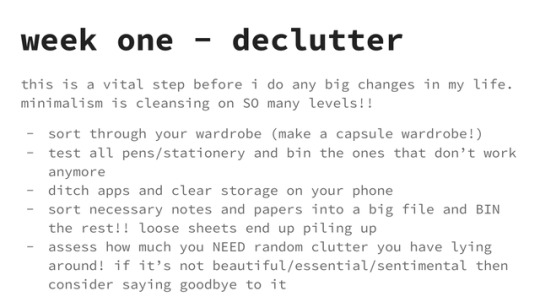




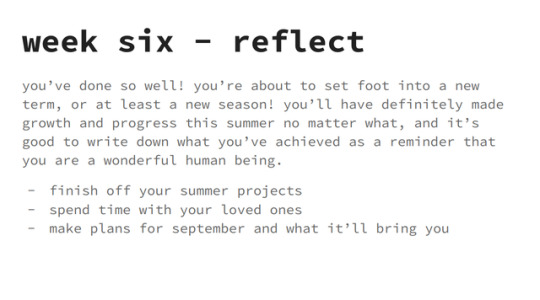

i made a 6 week summer plan!!
i’m going to following along roughly with this plan myself!! i’ve got big goals for self-improvement and detox this summer and i just want to start autumn afresh with big goals and hopes for the future!!
all my love ~
17K notes
·
View notes
Photo

Part 5 of my Studyblr University Orientation Week
I’d just like to preface this with two things:
I’m from Canada, where the legal drinking age is 19. I’m legally allowed to drink in my country, as are many other university students, including many first years. So before any Americans come for me about condoning underage drinking: I am not American. I do not condone underage drinking.
Okay now that we’ve got the disclaimers over with, let’s talk about alcohol. CW: discussions of vomit and rape.
You don’t have to drink if you don’t want to. Some people will be assholes about this. Ignore them. There are lots of reasons not to want to drink, including flat out just not liking it.
It’s not a clear cut between people who never drink and people who get drunk every weekend. Some people drink every weekend but only have one beer. Some people go out with friends once a month and get really drunk. Like so many things, this is a spectrum.
Know what you’re drinking and how it will affect you. This means knowing if your drink has vodka or rum in it and knowing that rum makes you really sleepy. Don’t have five shots the first time you try vodka. You don’t know how that shit’s going to affect you and you don’t want to find out the hard way that it makes you really horny.
Make sure that you’re either drinking with someone or you’re giving someone updates and not drinking too much. Getting drunk on your own can be dangerous. Don’t do it.
Drink lots of water.
Eat something before hand. No drinking on an empty stomach, y’all.
Throw up in the toilet. Not the sink. Not all over the toilet.
Clean up your own vomit. It’s rude to make your neighbour do it, especially when you projectile vomit all over the toilet.
Don’t text while drunk.
Hey sober buds? Don’t let people tell you important shit when they’re drunk or tipsy. And if they do, don’t hold it over their heads. They aren’t thinking clearly and it’s a shitty feeling to have something you didn’t mean being held over you like it was something that you did.
Hey sober buds? DRUNK PEOPLE CANNOT CONSENT. IF YOU ARE SOBER AND YOU HAVE SEX WITH SOMEBODY WHO IS DRUNK THAT IS RAPE.
Hey sober buds? Keep an eye out for your drunk buds. Use the buddy system and don’t let them wander off somewhere alone.
Don’t leave your drink unattended. If you do, don’t drink it anymore.
Pour your own drinks at parties.
Don’t drink and drive.
Know your limits.
62 notes
·
View notes
Photo

Hi there! I started learning latin three years ago, and I wanted to share some resources with you. Hopefully you’ll find this post helpful, whether you’re just beginning or you’re studying latin at AP/A-Level. header image: the roses of heliogabalus by lawrence alma-tadema
why learn latin?
over 60% of all english words originally come from latin! it can help you figure out the meaning of words you don’t know (yay etymology!!)
it’s the basis of the romance languages, so it can help you with spanish, italian, french, portugese, and romanian!
mythology!!!!!!!
everything sounds better in latin it has a bunch of wonderful phrases, many of which are still used today! some of my favorites are:
ars longa vita brevis // art is long, life is short
ex nihilo nihil fit // out of nothing comes nothing
scientia potentia est // knowledge is power
dum spiro, spero // while i breathe, i live
studying techniques
try flashcards! these are v cute and work nicely
if that doesn’t work for you, study foldables are a great way to remember vocabulary terms as well!
it’s really important to remember case endings and verb conjugations, so repeating them verbally helps you retain them
online resources
william whitaker’s words aka the best latin/english translator ever
memrise!! lots of mini latin courses by subject
key literary/rhetorical devices
comprehensive verb synopsis
latin grammar master list
summary of declensions
latin library!!
resources by topic
cambridge latin
find mentions of people in latin texts!
textbooks: latin via ovid, ecce romani
latinteach resources
try google (or the library if you’re old fashioned like me) and see what else you can find!!
AP resources
the aeneid (english translation) / the perseus project
de bello gallico (english translation) / the perseus project
aeneid vocabulary organized by word frequency (2)
additional posts
classical language learning masterpost by @myth-boy
how to study latin by @antiquarians
latin resources by @antiquarians
my other posts
how to start a studyblr
guide to ap art history
french music
using canva.com
how to reach your goals
what’s in my pen case?
vale (that’s goodbye) and good luck learning latin!! i hope this was helpful
-adi ♡
6K notes
·
View notes
Photo

This is what academia in 2019 looks like, y’all.
2K notes
·
View notes
Photo

18.2.18 // 5:20pm
today i had a bass audition and it went really well! i played fluorescent adolescent by arctic monkeys, and i’m really proud of the fact that after about ten months of teaching myself (i’ve never had a lesson, i learnt off youtube + tabs) and a few jam sessions, i’m good enough to actually perform.
other than that, it’s been a pretty chill day. got the biggest chunk of my work done over the weekend, which is good!
[listening to: still feel by half•alive]
#really miss playing bass#also fluorescent adolescent is nice but those octaves were a bit hard when I first played it#pics from others
608 notes
·
View notes
Text
Is it in or on?
A small mystery in the Norwegian language is which preposition you are supposed to use when it comes to place names.
You can live in - i - [name of town], but you can also live on - på - [name of another town], and it is often impossible to guess even for a Norwegian, which to use where, without having been told. And, you also risk offending the locals if you use the wrong one.
There are no grammatical rules that decide which to use, and this is of course where it gets complicated.
Sometimes you can make correct guesses based on the name of the town, since - for instance - Kongsberg means “King’s Mountain” and you live on a mountain, and Arendal means “Eagle Valley”, and you live in a valley. Simple logic.
But, unless you actually know it is called to live or stay on the town of - say - Lillehammer, whose etymological roots aren’t all that obvious any more, you have no way to make such a guess.
While you can avoid offending the locals simply by asking, it becomes logical first when you learn that Lillehammer - like so many of our towns and villages do - started out as a farm centuries upon centuries ago, and farms are something you live on. Also simple logic.
But etymology and logic do not always help. There are towns that started out as farms, but for which you use in, like Søgne, for instance. And we also have towns that started out as - and named after - some topographic or natural formation or feature where it would be natural to use in, like a valley or a forest, e.g. Oppdal or Finnskogen, but about which we actually use on.
In this episode of the Norwegian radio-show Språkteigen - a weekly show on Norwegian words and expressions - you can hear some explanations of some of the irregularities found in the use of prepositions in front of place names.
For advanced learners. And for Norwegians without a clue. OBS! Dialects will be heard.
320 notes
·
View notes